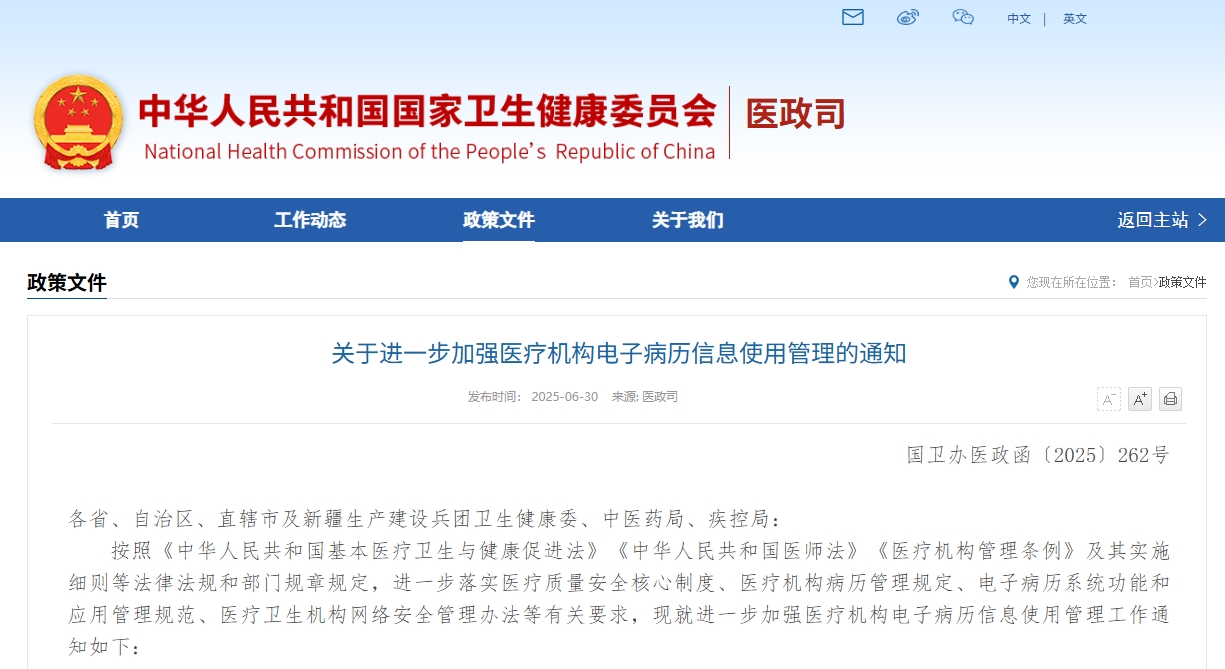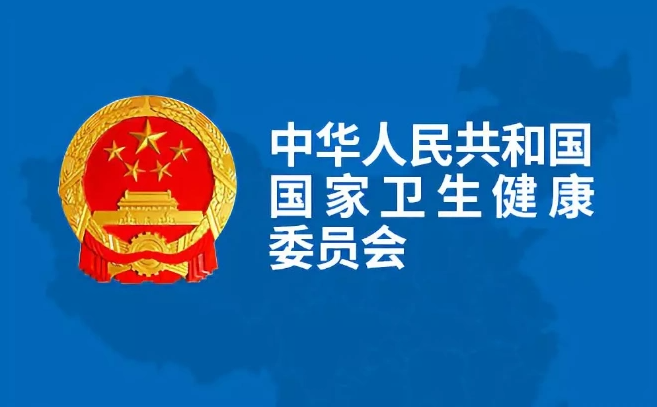
#Industry ·2024-12-27
Recently, the National Healthcare Security Administration issued a document titled "New Incremental Development brought by Medical Insurance", which mentioned that it is actively planning to explore and promote the empowerment of medical insurance data for commercial insurance companies, synchronous settlement of medical insurance funds and commercial insurance, and other related support policies. This is not the first time that the medical insurance bureau has released a "positive signal" of data exchange between medical insurance and commercial insurance. Since the drafting of the "Agreement on Promoting Information Sharing between Commercial Health Insurance Information Platform and National Medical Insurance Information Platform (Draft for Comments)" by the National Healthcare Security Administration and the State Administration for Financial Regulation in June 2023, the issue of data exchange between medical insurance and commercial insurance has been put on the agenda. On November 7, the National Health Insurance Bureau held a forum on the development of commercial health insurance enabled by data on the medical insurance platform, and invited ten institutions, including China Life Insurance, PICC, Pacific Life Insurance, and China Merchants Sinolife. The problems and obstacles in the development of commercial health insurance empowered by the national unified medical insurance system platform and big data were discussed, including empowerment scenarios, business needs, path methods, and guarantee conditions. On November 27th, the National Healthcare Security Administration and the Ministry of Human Resources and Social Security issued the "National Basic Medical Insurance, Work Injury Insurance, and Maternity Insurance Drug Catalog (2024)" notice, which also proposed to further promote the effective connection between commercial health insurance and basic medical insurance. In September of this year, the State Council issued the "Several Opinions on Strengthening Supervision, Preventing Risks, and Promoting High quality Development of the Insurance Industry" (the new "National Ten Articles" for insurance), which pointed out a new direction for the development of commercial health insurance, aiming to improve the level of insurance services for people's livelihood and enhance the level of health insurance services. To expand the coverage of health insurance, enrich the forms of commercial medical insurance products, and promote the rapid settlement of medical expenses. Commercial health insurance plays a significant role in China's medical security system. In the "1+3+N" multi-level medical security system promoted, "N" refers to other security forces such as commercial health insurance. According to data from the State Administration of Financial Supervision and Administration, as of October 2024, the premium income of commercial health insurance in China reached 873.862 billion yuan, an increase of 8.45% compared to the same period last year. The industry believes that there is a possibility of the health insurance premium exceeding the trillion yuan mark this year, but there is still a certain distance to go before the goal of striving for the health insurance market size to exceed 2 trillion yuan by 2025 proposed by relevant departments. 'Health first' to be broken Industry insiders point out that there is currently an overall low payout ratio in the commercial health insurance sector. According to the comprehensive payout ratio of short-term health insurance released by multiple insurance companies in the industry in 2023, including personal insurance companies and property insurance companies' health insurance products, the overall average comprehensive payout ratio is less than 50%. In the first half of this year, the median comprehensive payout ratio of health insurance for over 100 insurance companies was about 39%, a decrease of about 7 percentage points compared to the same period last year. The medical insurance bureau pointed out in this document that the overall payout ratio of health insurance in China still needs to be improved. Commercial health insurance faces problems such as information asymmetry, high institutional marketing underwriting costs, low payout ratios, and difficulty in combating fraud and insurance fraud. When the payout ratio of commercial health insurance remains at a low level, the probability of insured people "needing" the insurance is low, which will also weaken their enthusiasm for renewal and affect the long-term development of the health insurance market. Zhu Minglai, director of the Health Economics and Medical Security Research Center at Nankai University, told 21st Century Business Herald reporters that the structural pain point of some commercial health insurance currently lies in the excessive focus of insurance companies on low-risk populations, forming a market situation of "health first". The high intermediary and marketing costs have eroded the profit margins of insurance companies, making the profit model behind low payout ratios unstable. In addition, currently, China's health insurance is still constrained by the separation of commercial insurance and medical system data in terms of pricing, underwriting, and claims settlement. According to a research report by Guosen Securities, due to the late start and short development history of China's health insurance market, the data reserves that have undergone time testing are slightly insufficient. At the same time, due to limited data and personal information protection requirements, the early underwriting of health insurance mainly relies on customers' own declaration, and moral hazard adds pressure to subsequent claims risks to a certain extent; The claims process is also constrained by data, which limits the efficiency and accuracy of health insurance claims. Sun Jie, a member of the National Committee of the Chinese People's Political Consultative Conference and Vice Dean of the School of Insurance at the University of International Business and Economics, emphasized the importance of data in the development of commercial health insurance to 21st Century Business Herald reporters in a previous interview. For commercial health insurance, policy support may be particularly important and does not necessarily require financial subsidies. However, in this aspect of information sharing, it may be a great push for commercial health insurance. When medical insurance and commercial insurance steadily achieve data exchange, insurance companies will be able to improve the accuracy of disease incidence prediction based on more in-depth analysis of medical and medical insurance data. The industry believes that through more refined actuarial calculations, insurance companies can optimize product solutions, reduce underwriting costs, steadily improve payout levels, and thus include more innovative products in their coverage, thereby enhancing the public's health protection level. At the recent symposium on empowering the development of commercial health insurance through medical insurance platform data, Huang Huabo, Deputy Director of the National Medical Insurance Administration, pointed out that the national unified medical insurance platform and big data are important public resources. Medical insurance departments in various regions should adhere to the public welfare and fairness of the use of public resources, and at the same time, combine the specific characteristics of medical insurance platform data, highlight economy, security, and sustainability. They should ensure fair competition among commercial insurance institutions, promote cost reduction and efficiency improvement, and ensure the right to know and information security of the public. However, in the process of data sharing on the medical insurance platform, Zhu Minglai also told 21st Century Business Herald reporters that if insurance companies use this data to further screen customers, it may exacerbate the current situation of "precise selection" and "health priority". He believes that with the opening up of future medical insurance data, the development focus of commercial insurance companies should shift from narrow and precise selection of insured populations to expanding the insured population and solving the problem of "carrying sick bodies" for insurance. And through data analysis, reduce customer acquisition costs, lower marketing expenses, establish a more scientific and reasonable pricing mechanism, and steadily play the role of the "second pillar" of the pension insurance system. Innovative drugs and equipment still require commercial insurance incentives It is worth noting that innovative drugs and devices have become important participants in the development process of commercial insurance in recent years. With the development of China's economy and the intensification of population aging, the demand for medication among residents continues to grow; At the same time, the accelerated implementation of the Diagnosis Related Groups (DRG) policy in the new healthcare reform has effectively improved the efficiency of medical insurance payments. The industry believes that the reform of DRG has strengthened the positioning of the medical insurance fund to ensure basic and wide coverage. Previously, due to data constraints, commercial health insurance had strict pricing and approval standards, resulting in a relatively narrow coverage area that focused on supplementing out of pocket expenses within medical insurance, overlapping with the coverage of basic medical insurance. In recent years, the differentiated development of medical insurance and commercial insurance has formed a policy direction of structural complementarity. The Medical Insurance Bureau has issued this document to guide the differentiated development of commercial insurance companies and basic medical insurance, provide more support for inclusive and innovative drug consumption and equipment, offer more differentiated services, attract more customers to apply for insurance, and promote a positive interaction between the commercial insurance market and basic medical insurance. In terms of the development of innovative drugs, the integration of commercial insurance is indispensable. Li Jin, the director of Shanghai Gaobo Cancer Hospital, stated at this year's CIIE that after the launch of new drugs in China, they only account for 4% of the total medical expenses paid. "Why haven't ordinary people used the new drugs yet? We have a lot of room for improvement from meeting the needs of the people. If a drug costs hundreds of thousands of yuan, ordinary people have no other payment methods (help), and can only become poor or return to poverty due to illness, which is something we don't want to see. In recent years, various commercial health insurance products have emerged in the market, covering innovative drugs and medical devices. Common ones include Huimin Insurance, Major Disease Insurance, and Million dollar Medical Insurance. The "New Ten Articles of the People's Republic of China" on insurance clearly state that the application of new medical technologies, drugs, and devices should be included in the coverage of commercial health insurance. In addition to the medical insurance system positioned as "basic insurance", commercial health insurance is still needed as an incentive for connecting innovative drugs. Last July, the Shanghai Medical Insurance Bureau and seven other departments jointly issued the "Several Measures to Further Improve the Diversified Payment Mechanism and Support the Development of Innovative Medicines and Devices in Shanghai", proposing 28 key support measures, strengthening the linkage and coordination of "medical insurance, medical care, and medicine", establishing and improving the diversified payment mechanism, promoting the inclusion of more high-quality innovative medicines and devices in the payment scope of basic medical insurance and commercial health insurance, and enhancing the accessibility and affordability of innovative medicines and devices. Against the backdrop of the national advocacy for establishing a multi-level security system, the integrated development of drug insurance requires joint efforts from multiple parties, fully leveraging the positive role of diversified payments, and achieving value co creation across the entire industry chain. Data interoperability or core breakthrough point With the further enhancement of data exchange between medical insurance and commercial insurance, there is great potential for the development of commercial health insurance in the future. From a macro data perspective, in 2023, China's medical expenditure will be 5.7 trillion yuan, of which 2.8 trillion yuan will come from the medical insurance system, and the out of pocket scale of patients will be 2.5 trillion yuan. Commercial health insurance (medical insurance+critical illness insurance) will only pay 0.38 trillion yuan, accounting for 7%. Commercial health insurance has great development space in the medical security system. Huatai Securities' research report estimates that the premium for disease insurance (mainly long-term critical illness insurance) is 450.8 billion yuan, with a payment amount of 93.9 billion yuan; The medical insurance premium used for reimbursing medical expenses is approximately 391.5 billion yuan, with a payment amount of 285.6 billion yuan. Zhu Minglai believes that the interoperability of medical insurance data may become a core breakthrough for the future development of the industry. "Whoever can fully utilize this data will be at the forefront of the future. At present, the interconnection of commercial insurance and medical insurance in many places has entered the "present continuous time". Since July 26, Shanghai has taken the lead in promoting the direct compensation mechanism of "medical insurance+commercial insurance". As the first batch of commercial insurance companies, Pacific Health and China Life Insurance have cooperated with 12 top three hospitals, including Ruijin Hospital affiliated to Shanghai Jiaotong University School of Medicine and Zhongshan Hospital affiliated to Fudan University, to open the direct compensation pilot. Patients who participate in both medical insurance and medical insurance can complete full reimbursement and claims for "medical insurance+commercial insurance" in one go when seeking medical treatment at designated hospitals. At the same time, the Shanghai Medical Insurance Bureau recently held a special meeting to introduce the relevant measures and implementation effects of Shanghai's empowerment of commercial insurance development, and to look forward to future incremental policies. Previously, Zhejiang Province proposed to deepen the digital reform of medical insurance when promoting commercial supplementary medical insurance that benefits the people. By developing a public settlement platform for medical insurance, commercial supplementary medical insurance will be included in the "one-stop" settlement scope of medical insurance, solving the pain points of policyholders' compensation and running errands. On the premise of ensuring information security, sharing medical insurance data with commercial insurance companies, designing more accurate and sustainable products, and connecting the interests of the government and the market.

2025-07-04

2025-06-21

2025-06-13
You can send us a general question inquiry here
LINKS



0371-23627927
consult
top